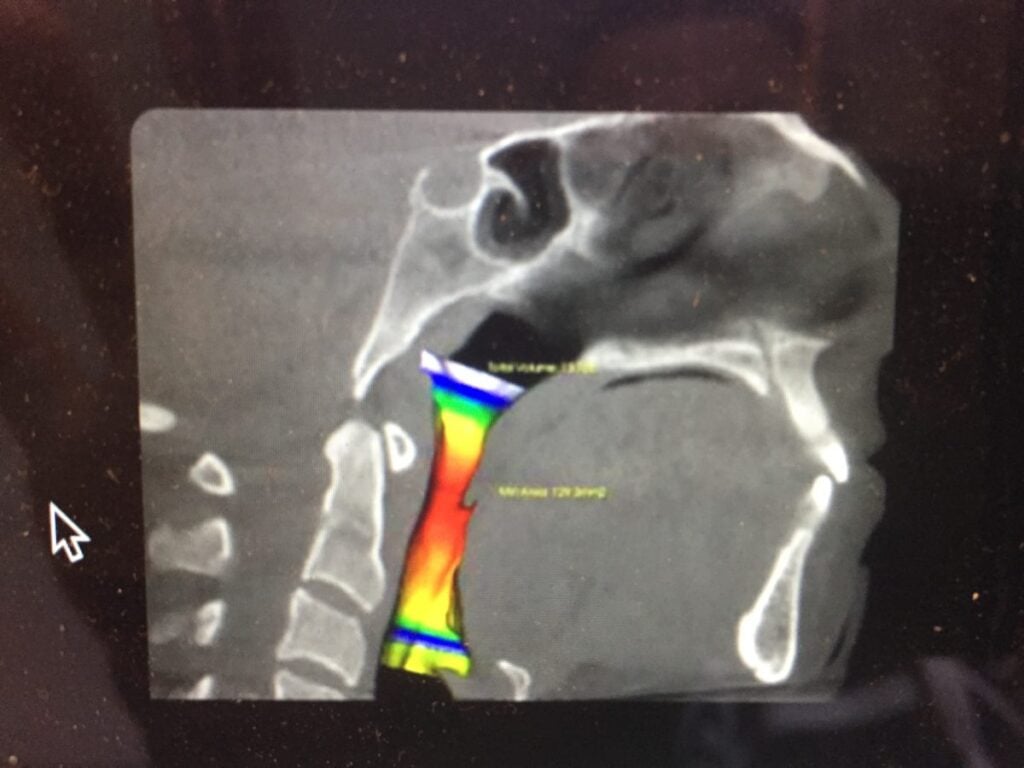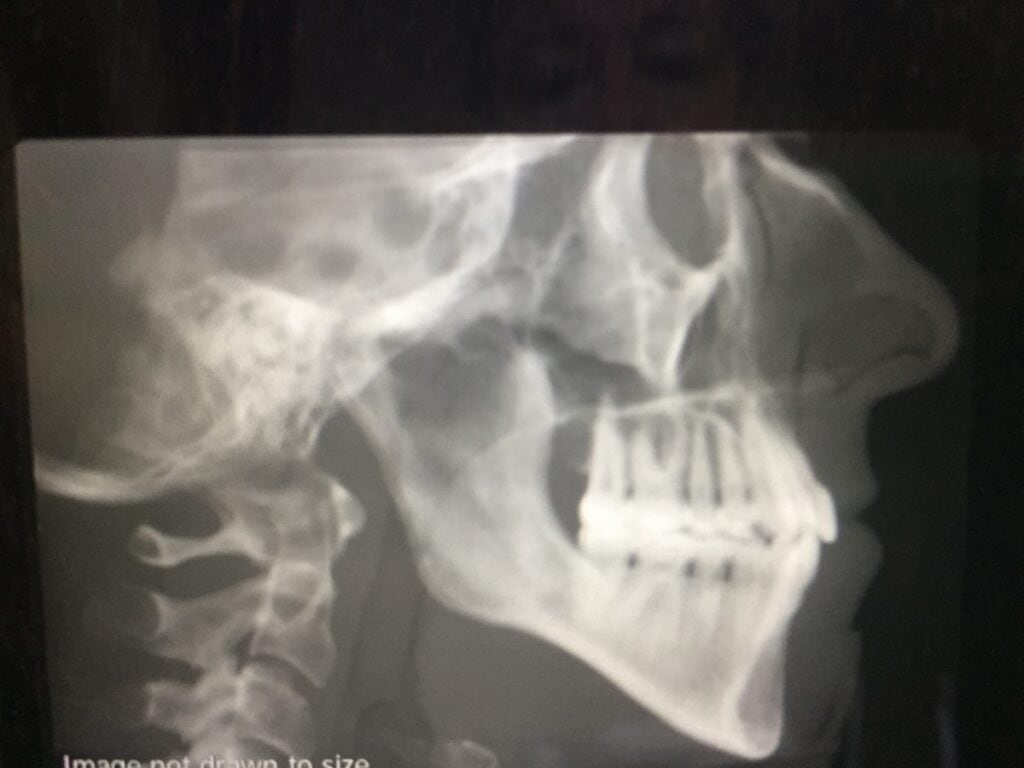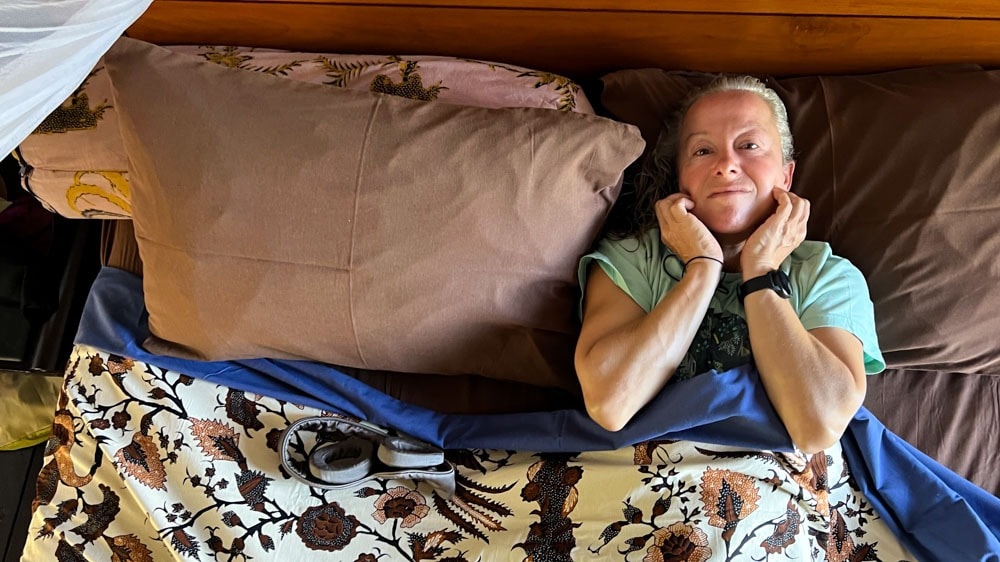I think that movement work can be a lot like detective work.
As you explore different movements and alignments, your body responds. Then we use your responses as information to shape our next steps. Over time, we build up a map exactly like one of those detective maps with pins in it everywhere a crime was committed. Once we see the pattern, we’re able to make more effective changes.
What do the pins show? Could be a spot where you often feel discomfort. Or a spot where you move very easily, or not at all. Maybe a flash of insight into a behaviour pattern, such as sucking in your belly when you’re nervous. Taken all together, they let us make an informed hypothesis about what might help you get better faster.
I recently had a giant “A-Ha” moment, where a whole lot of evidence suddenly coalesced into a cohesive narrative that explains a lot about my body and my health. It’s kind of rocked my world a bit. Ok, a lot. Here’s what happened.
My TMJD (Jaw) Issues
See, I have a set of symptoms usually referred to as “TMJD” (temporo-mandibular joint disorder, aka jaw issues). My jaw clicks when I eat, I grind my teeth, and I have a lot of tension in my neck, shoulders and cranial muscles. It’s totally not awesome, and it’s one of the first things I started out trying to fix when I began my health journey. I’ve seen many dental (and other!) professionals in this process, and never had any noticeable changes in my jaw. I recently decided I needed to try a new dentist, and that’s when things got crazy.
The new dentist – we’ll call her Dr. G. – is known for her work in TMJD and I was pretty excited to go to my consult because I had a feeling it would be eye-opening.
TMJD Can Be Related To A Tongue-Tie
Her dental hygienist took one look at me and then made my head explode.
“You have a tongue-tie,” she said. “There’s your problem right there”.
“Ummmurghghgh,” I said.
After I spat, she explained that a tongue-tie is the term used when you have a bit too much of a connection between your tongue and the bottom of your mouth.
The problem with a tongue-tie is that it affects how your tongue works, which means that it messes up your swallowing mechanics (among other things). You may never have considered your swallowing mechanics before – I certainly had not. But of course, we swallow many, many times a day. The combined force of all that swallowing is not minor! And when your swallowing mechanics are off, it can have a big impact on your health.
Here’s What Can Happen When You Have A Tongue-Tie
Your jaw muscles tighten to compensate for the loss of the normal healthy support your tongue should provide.
And then this giant cascade of effects can take place.
You can get headaches (check). Or you might end up carrying your head forward of its ideal position (check). Your neck and shoulder muscles can tighten up (check). It’s possible that your airway may be narrowed which can cause major sleep issues and insomnia (CHECK). Your jaws, teeth and sinuses might change their shape (check). If you’re a baby, you can’t latch for nursing (I don’t know why I was only breastfed briefly, but I have a strong suspicion). You can get ear issues (check). And…you like to mouth-breath (check).
OH MY GOSH. I am a TEXTBOOK example of an adult with a mild tongue-tie, but it took 42 years for anyone to tell me about it, including the other TMJD professionals I have consulted.
The dentist confirmed the diagnosis and sent me for some imaging to get a better sense of what’s going on in my head.

The Way I Swallow Is Messing Me Up
My CT scan showed that my sleeping airway is only 6mm in diameter – normal is about 20mm. How do you think my body feels about that? I am honestly super, super impressed that it’s done such a good job of keeping me going with a constant stressor like that. And it also totally explains my persistent insomnia!
It’s crazy how well this explains my entire lifetime of health issues. Everything makes a lot more sense to me now.
What I find extra fascinating about this – as a movement teacher trained by a biomechanist – is how PERFECTLY my body responded to the constant loads created by my swallowing patterns. It literally has shaped itself around my swallowing, and allowed me to continue being alive, which is awesome. It’s super cool, even if I don’t appreciate some of the consequences a whole lot.
But it’s now time to see if I can reshape it!
Getting My Tongue Untied
I’ve decided to get the tongue tie ‘released’, which is a nice way to put it. I’m pretty conservative about surgical solutions to body issues since most of the time they don’t actually treat the cause of the problem.
For example, if you have a severe bunion, surgery may give you some relief but it won’t do anything to change the forces and loads that created the bunion in the first place. Plus, once you go and cut stuff, things never work quite the same way again, so you change your potential to heal naturally, whatever that might be.
However, in this case it seems like the tie actually IS the movement problem, unlike the bunion which is just the symptom of the movement problem. And I’ve done a bunch of research, all of which suggests that my worst case scenario is that, post-release, my swallowing mechanics don’t change. Since that gets me back to where I am right now, I feel like it’s worth a try.
Post-Release Treatment
That also means I’m now working with an Orofacial Myofunctional Therapist. We’re working on changing my tongue posture and preparing my tongue for its future on a normal length leash. I really like corrective exercises, but the tongue ones are ridiculous. So far I haven’t noticed any changes except that my tongue is sore and I’m getting better at keeping it stuck to the roof of my mouth, but it’s only been a week or so.
I’m very aware that swallowing mechanics are only a part of this – even if they’re a big part. Post-release, I plan to be working a lot with my upper body to see if I can create changes in the tension patterns that resulted from my swallowing habits. I’m excited about this journey and looking forward to sharing what I discover.

Your Mechanical Environment Shapes Your Body
It is 100% absolutely clear that our bodies are shaped by mechanical forces.
Like trees being shaped by the wind, our bodies respond to a lifetime of mechanical inputs. Swallowing is one possible input – just like sitting in chairs, walking on natural surfaces, or wearing Spanx are inputs. If you want to create change in your body, you need to start thinking about the mechanical forces that are part of your daily life.
This isn’t always easy – and it doesn’t always happen quickly. For me it’s been a journey that started over 15 years ago! But with each new inquiry, I’ve learned something and invited more change and healing. And now I have a new and potentially transformative piece of the puzzle!

Do You Grind Your Teeth?
Tooth grinding, TMJD and all the related issues are very common.
Now I wonder how many other people are in the same boat as me: they have a tongue-tie or poor swallowing mechanics and no-one has ever offered this as a diagnosis. Tongue-ties are also fairly common – as much as 2% of the population can be affected.
As much as I’m appalled that no-one ever mentioned this to me, it also kind of makes sense. Tongue-ties are talked about a lot in the birth world (since a baby with a tongue-tie may not be able to breast feed), but even this is a fairly recent development. Even progressive dentists may not be aware of the possible association between a tongue tie/swallowing habits and TMJD. And there isn’t any proof that releasing an adult tongue-tie will have a benefit for TMJ-related issues.
But, if you happen to be suffering from tooth grinding, head-aches, poor sleep, and any of the many other issues that TMJD includes, it might be worth looking into your swallowing mechanics!
Here are some great resources that have helped me: The Breathe Institute, The Academy of Orofacial Myofunctional Therapy, and The Tongue Tied Adults Support Group on Facebook. And you can always reach out to me on my Facebook page if you have any questions!







